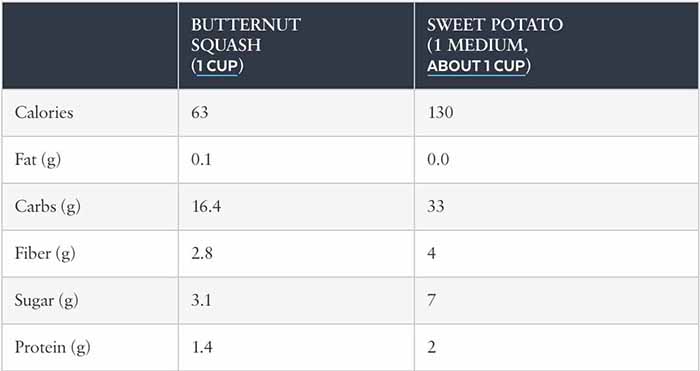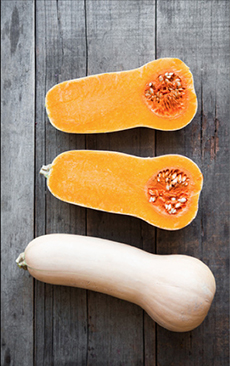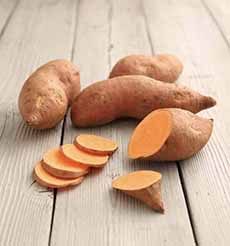TIP OF THE DAY: Choose Butternut Squash Over Sweet Potatoes
|
|
It’s the time of year where lots sweet potatoes and winter squash are served up. They’re both orange, a color that owes thanks to lots of the antioxidant† beta-carotene. They’re both yummy. But are they equally nutritious? Nope. Sweet potatoes have about double the calories, carbs, and sugar than than butternut squash (see the chart below—source). While sweet potatoes do have more fiber and protein than butternut squash, the numbers are not significant like the calorie and carb numbers: And actually, cup for cup acorn squash is the most nutritious of all the winter squash varieties—but it’s smaller and thus yields less meat‡. It has more calcium, folate, magnesium (nearly one-third of a day’s worth in one cup) and potassium than butternut, hubbard and spaghetti squash. Of course, all winter squash varieties deliver on nutrition. In addition to fiber and protein, their nutrition includes: *There are 11 types of winter squash: acorn, banana, buttercup, butternut, delicata, hubbard, kabocha, pumpkin, spaghetti, sweet dumpling and turban squash. Summer squash has a thin peel that can be eaten. Yellow squash and zucchini are examples. |
|
 [3] Image © POPSUGAR Photography / Grace Hitchcock. ________________ †An antioxidant is an enzyme or other organic molecule that reduces the rate of particular oxidation reactions and can counteract the damaging effects of oxygen in tissues. Here’s more about antioxidants. ‡In addition to referring to the flesh of animals used as food, “meat” also designates the edible part of anything, e.g. a fruit or nut.
|
||




